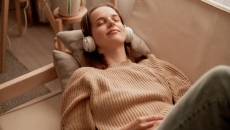While regular physical activity is known to protect against cognitive decline as we get older, this protective effect may be diminished for people who are not getting enough sleep, particularly for those sleeping less than six hours, according to a new study.
The study, published in The Lancet Healthy Longevity, showed that people who were more physically active but had short sleep -- less than six hours on average -- had faster cognitive decline overall, meaning that after 10 years their cognitive function was equivalent to peers who did less physical activity.
"Our study suggests that getting sufficient sleep may be required for us to get the full cognitive benefits of physical activity. It shows how important it is to consider sleep and physical activity together when thinking about cognitive health," said lead author Dr Mikaela Bloomberg, from University College London’s Institute of Epidemiology and Health Care.
"Previous studies examining how sleep and physical activity might combine to affect cognitive function have primarily been cross-sectional -- only focusing on a snapshot in time -- and we were surprised that regular physical activity may not always be sufficient to counter the long-term effects of lack of sleep on cognitive health," Bloomberg added.
The study found, in line with previous research, that sleeping between six and eight hours per night and higher levels of physical activity were linked to better cognitive function.
In the new study, the team looked at cognitive function over 10 years in 8,958 people aged 50 and over in England.
Those who were more physically active also had better cognitive function regardless of how long they slept at the start of the study.
This changed over the 10-year period, with more physically active short sleepers (less than six hours) experiencing more rapid cognitive decline. This rapid decline was true for those in their 50s and 60s in this group, but for older participants (aged 70 and over) the cognitive benefits of exercise appeared to be maintained, despite short sleep.
"It is important to identify the factors that can protect cognitive function in middle and later life as they can serve to prolong our cognitively healthy years and, for some people, delay a dementia diagnosis," said co-author Professor Andrew Steptoe, from UCL’s Institute of Epidemiology and Health Care.






